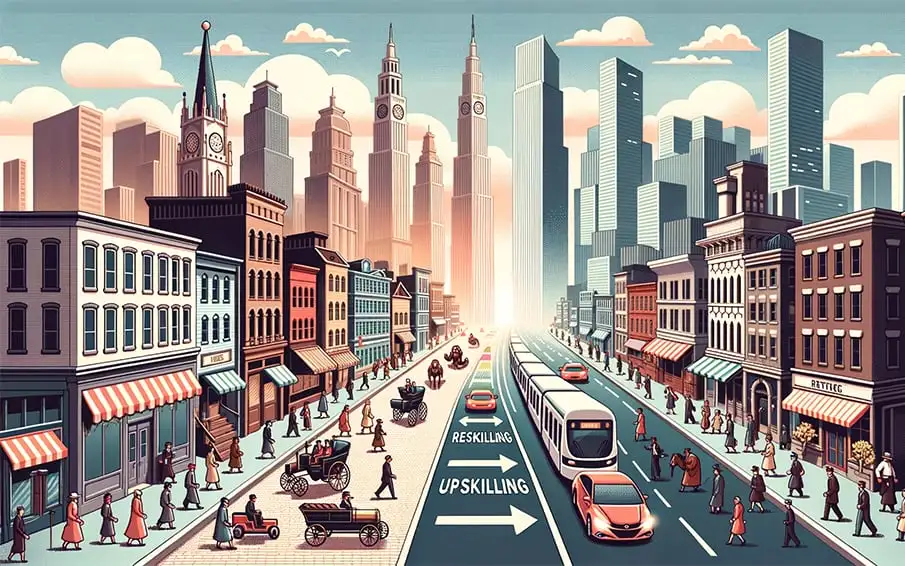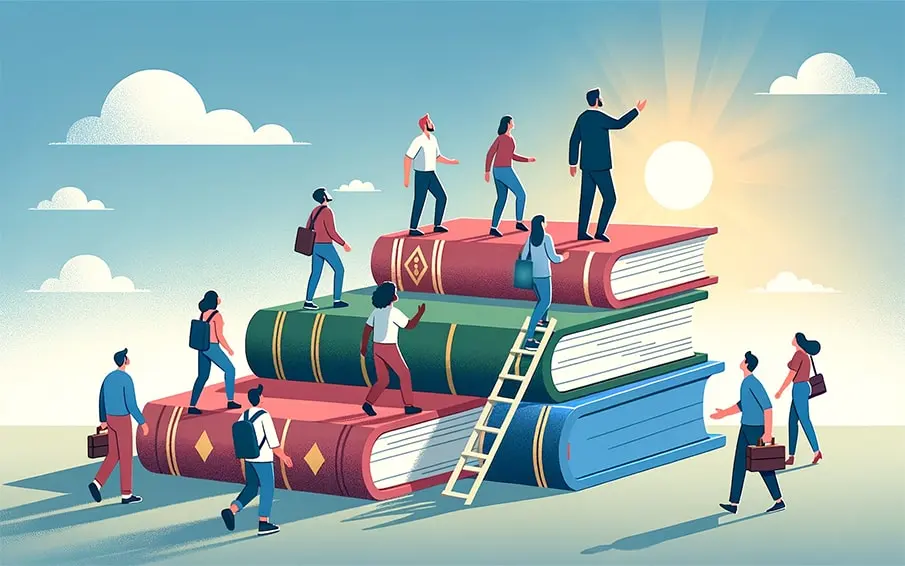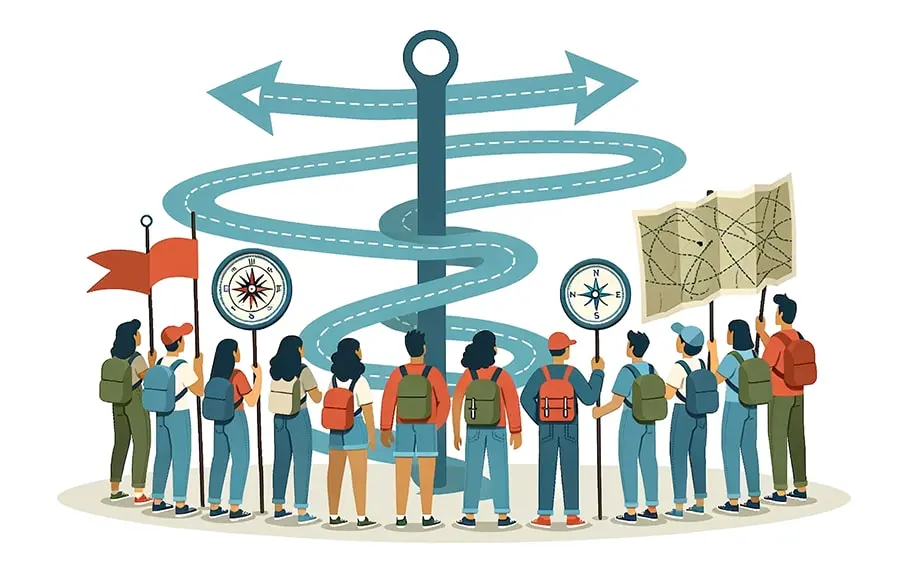Change is the only constant, and this couldn’t be truer for the modern workforce. Just like cities evolved from horse-drawn carriages to bustling metros filled with cars, our professional landscape is shifting. The key drivers? Reskilling and upskilling.

Breaking Down the Basics
Navigating the jargon of the modern job market can be overwhelming. However, understanding reskilling and upskilling meaning can shed light on the evolving nature of work and how we can remain relevant in our careers.
Reskilling Defined
Reskilling is like giving your career a new direction. It revolves around the idea of acquiring entirely new skills to fit into a different role or industry. Take a traditional librarian, for instance. In today’s digital age, reskilling for them might mean diving into digital archiving or database management.
The Upskilling Unveiled
On the other hand, upskilling is about amplifying what you already know. It’s about refining your current skills and adding more tools to your professional toolbox. Here are some reasons why upskilling is becoming indispensable:
- Rapid Technological Evolution: The tools and platforms we use today might become outdated tomorrow.
- Competitive Advantage: Staying ahead in your field means constantly sharpening your skills.
- Meeting Industry Standards: As industries evolve, standards and best practices also change.
Think of a teacher who has been giving lectures for years. Upskilling for them could be about mastering new e-learning platforms or incorporating tech-savvy tools into their teaching methods.
The Whys and Hows of Reskilling and Upskilling

Just like smartphones need software updates to function efficiently, our professional toolkit needs regular upgrades too. That’s where reskilling and upskilling come in.
Why the Need?
The reasons are manifold. Here’s a snapshot of why reskilling and upskilling are crucial:
- Technological Disruption: With AI, automation, and other tech advancements, some roles diminish while new ones emerge.
- Changing Business Dynamics: As companies expand or pivot, the skill demands shift.
- Lifelong Learning Culture: Cultivating a culture of continuous learning ensures professional longevity.
Rapid technological advancements mean that some job roles will become obsolete, while others will emerge. As businesses spread their wings globally, the demand for diverse and evolving skills keeps rising. Moreover, some roles are continuously transforming. For instance, marketing roles now require a deep understanding of digital tools and platforms, which wasn’t the case two decades ago.
Embarking on the Journey
Recognizing the need to evolve is the first step. The next is about taking actionable steps towards that evolution. It begins with a thorough self-assessment, understanding where you stand, and where you wish to be. This is followed by market research, identifying what skills are in demand. Then, it’s about diving deep – be it through online courses, workshops, or traditional education. And of course, networking remains invaluable, providing insights that are often not available in textbooks.
The Real-World Impact of Reskilling and Upskilling
Alright, let’s bring this down to reality. What does all of this mean for an individual and a business?
For Individuals
Upskilling and reskilling aren’t just about ticking off skills from a checklist. They’re pathways to profound personal and professional growth. They can unlock doors to new job roles, ensure job security in a volatile market, and provide a deep sense of satisfaction and achievement.
For Businesses
For businesses, the implications are transformative. An upskilled workforce means tasks are executed more efficiently. Investing in employee growth leads to reduced turnover rates, ensuring that talent stays and thrives within the organization. Moreover, in markets that change at the drop of a hat, a skilled workforce ensures that the business remains agile and adaptive.
The Road Ahead: Embracing Continuous Learning

In the grand scheme of things, where are we headed? The answer is simple but profound: a world where learning never stops.
The Lifelong Learning Paradigm
The boundaries of learning are expanding. It’s no longer just about formal education. The future belongs to those who are adaptable and have an insatiable hunger for knowledge. Collaborative learning, staying updated with industry trends, and a passion for growth are the hallmarks of the modern professional.
Conclusion
Wrapping it up, reskilling and upskilling aren’t mere buzzwords; they’re the guiding stars for anyone looking to thrive in the professional world. So, as the world turns and the job landscape shifts, the question remains: are you prepared to evolve and lead the change?


